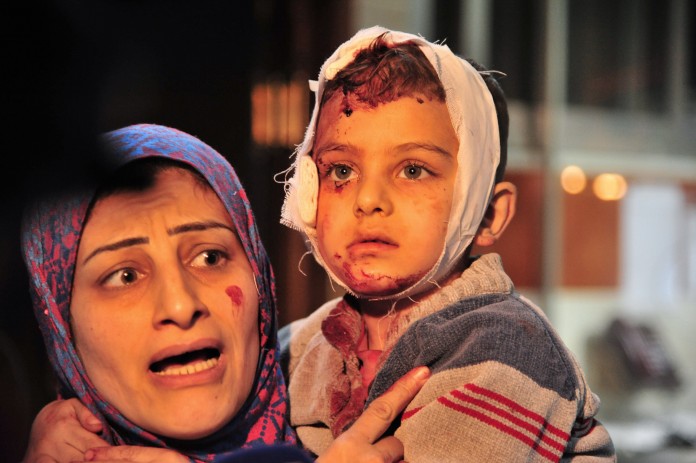
Presidential campaigns have deemed the Syrian refugee crisis a matter of politics. Syrians are either welcome, or not.
Texas Gov. Greg Abbott sued the federal government on the resettlement of refugees in Texas.
Students and members of the Waco community started a petition to allow more refugees into the city.
But Damascus, Syria junior Amjad Dabi says it is not a political issue, but a matter of altruism.
“Look at the range of this catastrophe that people have been subjected to in Syria.” Dabi said. “I mean, we have 4 million refugees in neighboring countries … half the country has left its home.”
Dabi, along with another student, came to America with the aid of Dr. Bradley Bolen , a senior lecturer in the school of music. While studying music and pre-med, Dabi hopes to use his education to eventually return to Syria to help the home he was forced to leave.
And there are organizations set in place with the same goals in mind.
American Voices was the organization that allowed for Dabi to come to America.
American Voices uses cultural diplomacy as a bridge “to connect global citizenry in a unique sphere of shared cultural meaning through the arts, music, dance and theater,” according to its website.
Though not all Syrians are Muslim, a candlelight vigil was held at Baylor to ensure Muslim students felt welcome. The vigil was organized in response to presidential hopeful Donald Trump’s proposal to block Muslims from entering the United States.
“Part of it is the realization that most people are often more profound than their stereotype,” Dabi said. “I think sometimes we use stereotyping to avoid discussing legitimate issues.”
Such was the case for Al Siddiq, the president of the Islamic Center of Waco.
After the Sept. 11 attacks in 2001, Siddiq was questioned by the FBI, primarily because former President George W. Bush owned a ranch 30 minutes outside of Waco. They soon found Siddiq spent seven years serving in the United States Army.
Siddiq, who immigrated to Waco from Pakistan in 1987, was appreciative of the vigil.
“Baylor has been very supportive of us, and we have been very accommodated by Baylor,” Siddiq said. “We have been especially appreciative of the religion department.”
Siddiq, who originally came to the U.S. to study, has given lectures in the religion department before.
Dabi came for the same reason.
“I think it is good to have perspective on the opportunities you are offered that others lack,” Dabi said. “Baylor, especially the music department, offered me opportunity when I didn’t have much at the time to offer.”
Dabi spoke about his parents who are still in Syria. He tries to speak to them as much as he can, despite the spotty electricity in Syria. He said he worries about them. With his education from Baylor, Dabi plans to go back to make a difference in the country he had to leave.





